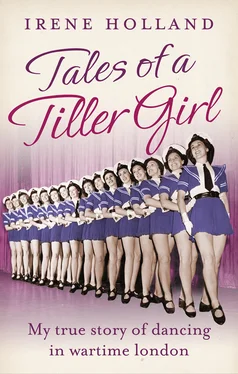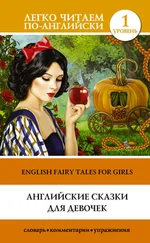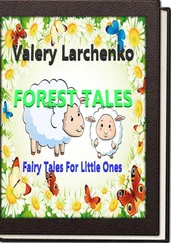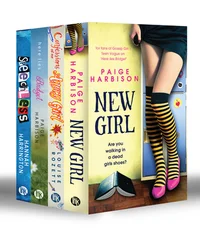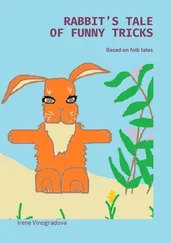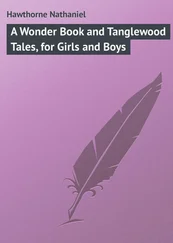Mum and I stuck together, and we were a close little unit. She had a couple of boyfriends when I was very young, although I don’t remember meeting them. It was only when I was much older that she told me about one man she actually got engaged to.
‘But then he turned around and said that he’d only marry me if I’d agree to put you in a children’s home, so I told him to get knotted,’ she said.
It’s only as I grew up that I started to appreciate how hard it must have been to be a single parent in those days. As I got older, I came to realise that I was different because other children had fathers and I didn’t.
‘Why haven’t I got a daddy like everyone else?’ I asked Mum one day. ‘Where is my daddy?’
She got a dusty album out of a drawer and showed me a photograph. It was a sepia picture of a handsome young man with blond hair and big, expressive brown eyes and dark eyebrows.
‘That was Daddy,’ she said gently. ‘Your lovely dark eyes are just like his.’
There was another black-and-white photograph of Dad in a helmet and goggles standing next to a motorbike.
‘That’s him and his beloved motorbike,’ she told me. ‘He used to strap his cello on the back and go whizzing round London from theatre to theatre.’
Because I didn’t remember anything about Dad it was nice to hear stories about him.
‘Your father was a very unusual man,’ Mum told me. ‘He had strong morals about how children should be treated.’
She described how she had been out one day with him and my brother.
‘We were walking down the road and your father saw another man and his son across the street. The boy was only about five and he must have done something naughty so his father gave him a slap around the legs.
‘Well, when your father saw this he was so angry. He crossed over the road and told the man in no uncertain terms to never, ever hit his child again. I think the man was a bit shocked getting reprimanded by a complete stranger, but I was so proud of your dad.’
It was the norm for children to get a good hiding in those days, but Mum said my father was dead against it and he would always intervene if he saw someone hitting or shouting at a child or treating them badly.
‘Your father was a very gentle man and a great champion of children,’ she said. ‘He was a natural with them. You had bad colic when you were a tiny baby and he’d sit there for hours playing music from the ballet The Dying Swan on his cello trying to soothe you to sleep.’
‘He sounds like a lovely daddy,’ I said sadly.
Hearing how wonderful and kind he was made me feel even sadder that he wasn’t around, and even though I couldn’t really remember him I always felt his loss in my life.
The only father figure I had was my brother Raymond. He’d been very close to my father and I don’t think that he ever got over his death. People didn’t show their feelings in those days, though, and if I ever asked him about my dad, he would clam up.
‘I don’t want to talk about it, Rene,’ he would tell me.
My brother was very academic and clever, and he always bought me books. While other children my age were being read Winnie the Pooh or The Wind in the Willows , he brought me home the complete works of Charles Dickens and Thomas Hardy.
‘Sit down, Rene,’ he said one day. ‘I’m going to teach you to play chess.’
My father had taught Raymond to play chess and so he decided he was going to teach me. He was a chess whizz but I was four years old and had no interest whatsoever.
‘This is so boring,’ I moaned as we sat and stared at the checked board.
‘Oh, Rene, you’re such a fidget, it’s all about skill,’ he said.
But I preferred something much faster moving, and even though I adored Raymond it didn’t interest me in the slightest.
‘Oh, I give up,’ he said, exasperated. ‘One day, Rene, you’ll find something that you love doing.’
Even though I was only four years old I was about to stumble across something that would become my biggest passion for the rest of my life.
Through the darkness I saw them. Dancing around with their floaty wings like beautiful butterflies.
‘Fairies!’ I gasped. ‘I can see fairies!’
I felt as if I were in a dream and I had never seen anything like it in my life. I just sat there on the edge of my seat with my mouth gaping open as I watched these mystical creatures flitting around the stage.
‘Mummy, I want to be one of those,’ I whispered. ‘I want to be a fairy.’
I was four years old and my mother had taken me to see my first ever pantomime – Cinderella at the Grand Theatre, Clapham Junction. I had loved the pumpkin coach, but when the gauze curtain came down all lit up with twinkly lights and these fairies danced across the stage I was absolutely mesmerised. This was the first time I had seen anyone dance, and from then on that was it. I was hooked for the rest of my life.
‘Please can I do that, Mummy?’ I asked afterwards. ‘Can I dance like a fairy?’
‘Well, you could do ballet lessons if you wanted,’ she said.
I didn’t forget about it, and Mum kept her promise and I started going to a weekly lesson at a local ballet school in Clapham. It was in a big house, and one room had been converted into a ballet studio with huge mirrors and a barre down one side. Each lesson cost 2s. 6d. (two shillings and sixpence), and it must have been a struggle for Mum to afford it, but I loved every minute of it and I lived for that day of the week. Leotards hadn’t been invented in those days and tutus were only worn for formal occasions like shows and exams, so I wore a loose black cotton tunic that my grandmother had made me, and I had a piece of pink chiffon wound around my head and tied in a big bow at the back to keep my hair off my face.
I hung on to the ballet mistress’s every word, and I memorised each step and practised until it was perfect.
‘I’d like you to be Greek slave girls today,’ she told us one afternoon. ‘I want you to pretend that you’re holding a vase as you promenade.’
It was very sad, melancholy music, and as I paraded around the room pretending to hold a heavy Grecian urn on my shoulder I felt in my heart I really was that unhappy little slave girl. So much so, I even felt tears in my eyes as I danced.
At the end of the class, when Mum came to collect me, my ballet teacher took her to one side.
‘I think Irene has great potential,’ I heard her say. ‘She really seems to feel the music and her timing is spot on.’
That didn’t mean anything to me. All I knew was that dancing was just another way of being a fairy and I loved it. But just a few weeks after starting my lessons I suddenly got very ill. I was burning up, and all this horrible stuff was oozing out of my right ear. I was in absolute agony.
‘We’d better take you to see the doctor,’ said Mum.
I knew it had to be serious for that to happen. These were the days before the National Health Service, and a visit to the doctor’s surgery cost a lot of money.
The doctor examined me as I whimpered in pain.
‘She has an abscess of the middle ear,’ he told my mother. ‘You need to get her to hospital straight away. If it’s not treated quickly it can be highly dangerous and spread to the brain.’
By then I felt so ill I could barely walk, and Mum had to carry me to St George’s Hospital in Tooting. When we got there she passed me to a doctor.
‘Say goodbye to your mother,’ he told me.
Suddenly I was absolutely terrified. I’d never been away from Mum and I didn’t know where they were taking me or what they were going to do to me.
Читать дальше
